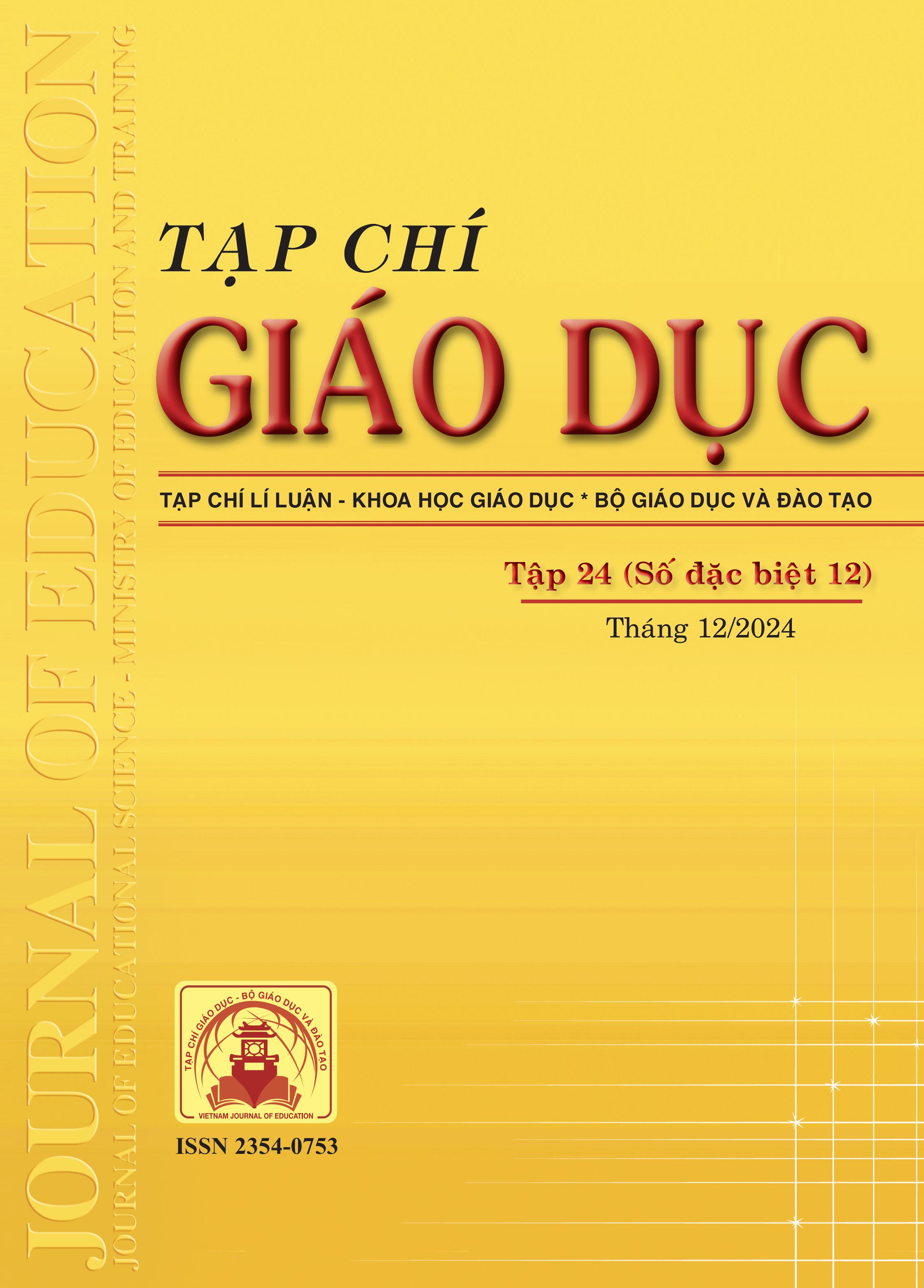Khai thác và sử dụng trò chơi khoa học trong dạy học môn Khoa học ở lớp 4: Nghiên cứu trường hợp tại một số trường tiểu học Quận 12, Thành phố Hồ Chí Minh
Tóm tắt
Scientific games not only help students learn better but also contribute to creating a positive, exciting and creative learning environment. For primary school students, scientific games also help train patience and carefulness in the process of performing learning tasks. However, the application of scientific games in teaching Science in primary schools still faces many challenges. This study analyzes the current situation of exploiting and using scientific games in teaching Science for 4th graders. The results show that the practice of exploiting and using scientific games still faces many shortcomings. One of the main reasons is the lack of equipment for the games, limited time and experience of teachers. The results will be an important practical basis for proposing solutions to improve the effectiveness of using scientific games in teaching Science for 4th graders.
Tài liệu tham khảo
Beier, M. E., Miller, L. M., & Wang, S. (2012). Science games and the development of scientific possible selves. Cultural Studies of Science Education, 7(4), 963-978. https://doi.org/10.1007/s11422-012-9408-0
Chen, M. H. M., Tsai, S. T., & Chang, C. C. (2019). Effects of game-based instruction on the results of primary school children taking a natural science course. Education Sciences, 9(2), 1-15. https://doi.org/10.3390/educsci9020079
Illingworth, S., & Wake, P. (2021). Ten simple rules for designing analogue science games. PLoS Computational Biology, 17(6), 1-16. https://doi.org/10.1371/journal.pcbi.1009009
Lester, J. C., Spires, H. A., Nietfeld, J. L., Minogue, J., Mott, B. W., & Lobene, E. V. (2014). Designing game-based learning environments for elementary science education: A narrative-centered learning perspective. Information Sciences, 264, 4-18. https://doi.org/10.1016/j.ins.2013.09.005
Li, M. C., & Tsai, C. C. (2013). Game-based learning in Science education: A review of relevant research. Journal of Science Education and Technology, 22(6), 877-898. https://doi.org/10.1007/s10956-013-9436-x
Lương Phúc Đức. (2016). Giáo dục kĩ năng học hợp tác cho học sinh lớp 4, 5 qua trò chơi khoa học. Luận án tiến sĩ Khoa học Giáo dục, Trường Đại học Sư phạm Hà Nội 2.
Orlich, D. C., Harder, R. J., Callahan, R. C., Trevisan, M. S., & Brown, A. H. (2010). Teaching strategies: A guide to effective instruction (9th ed.). Wadsworth, Cengage Learning.
Owens, K. D. (1997). Playing to learn: Science games in the classroom. Science Scope, 20(5), 31-33.
Schacter, J., Thum, Y. M., & Zifkin, D. (2006). How much does creative teaching enhance elementary school students’ achievement? Journal of Creative Behavior, 40(1), 47-72. https://doi.org/10.1002/j.2162-6057.2006.tb01266.x
Đã Xuất bản
Cách trích dẫn
Số
Chuyên mục
Giấy phép

Tác phẩm này được cấp phép theo Ghi nhận tác giả của Creative Commons Giấy phép quốc tế 4.0 .












